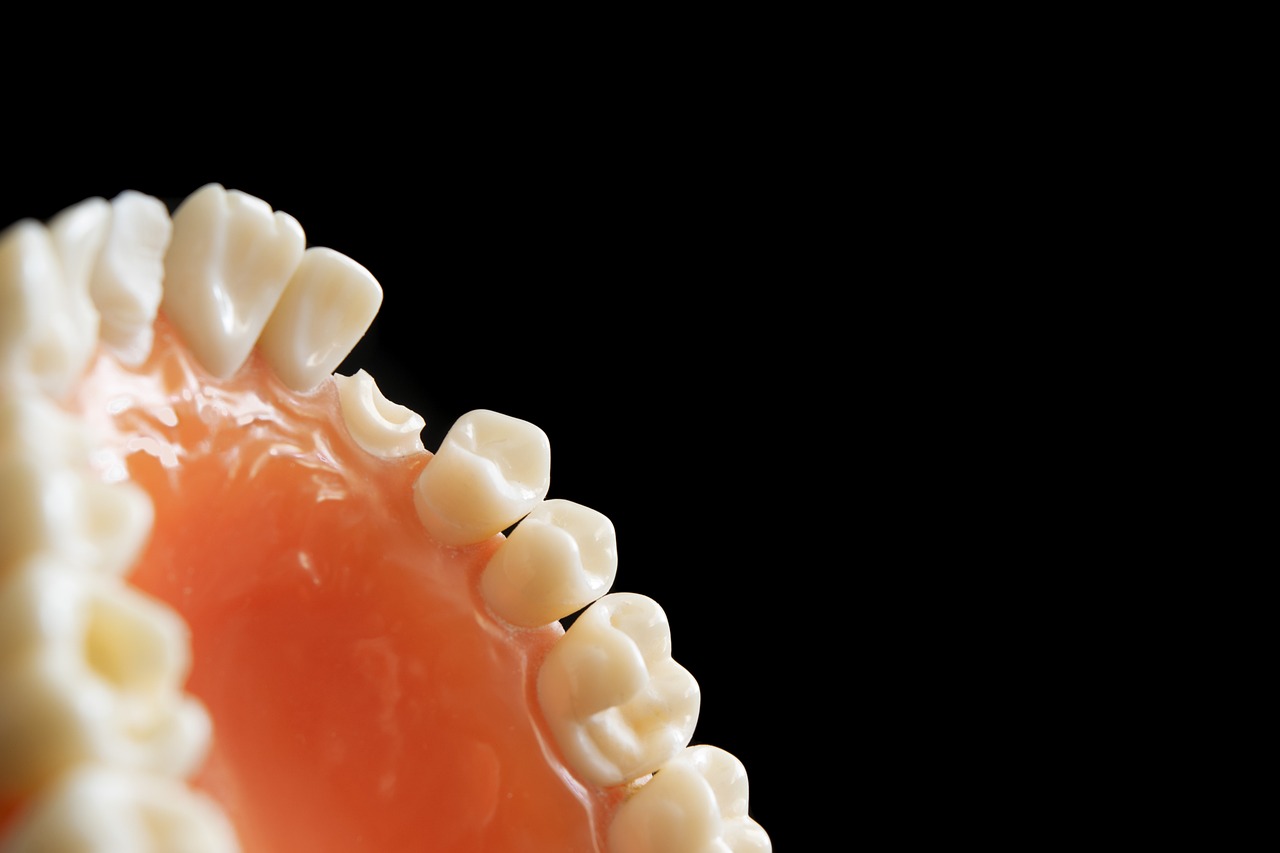Why Ignoring a Dental Cavity May Not Be as Safe as You Think
In the hustle and bustle of our daily lives, it’s easy to overlook seemingly minor health issues. One such issue that often gets relegated to the back burner is a tooth cavity. Many people
choose to put up with the pain and discomfort that come with a cavity on their tooth rather
than finding a solution. Some fear that going to the dentist for a filling will hurt. And for those
without dental insurance, there is the cost to worry about.
But is it safe to ignore a cavity? Cavities will not go away on their own. Instead, they will grow.
The bigger a cavity gets, the more likely it is to create more serious issues with the teeth, gums,
and even other parts of the body. Waiting can significantly increase the pain, expense, and risk
to the patient’s overall health. Let’s delve into the hidden dangers of neglecting this common
dental problem.
How Do You Know If You Have a Cavity?
Dental cavities, also known as caries or tooth decay, are a common yet often underestimated
oral health issue affecting people of all ages. A cavity forms when bacteria in the mouth
produce acids that erode the enamel, resulting in a small hole in the tooth. Initially, a cavity
may not cause noticeable symptoms, leading many individuals to ignore its existence.
What does a cavity look like? If it is not hidden on a back molar or between teeth, patients
might see a slight discoloration on a tooth. It might start out as a spot that looks whiter than
the natural tooth color. As time goes on, it can turn yellow, brown, or black. In some cases, the
patient might be able to see a tiny pit or hole too.
Most patients are more likely to feel a cavity before they see it. What does a cavity feel like?
Sensations can range from simply noticing the hole with one’s tongue to a constant, throbbing
toothache. The most common symptoms of a cavity are:
pain, especially when chewing or biting down on something, and
sensitivity to anything hot, cold, or sweet
These symptoms might start out being sporadic, and get more intense and constant as time
goes on. Even if a patient wants to ignore a cavity, the discomfort will make it very difficult to
do so as the cavity takes hold.
-
Sale!

CURING HYPERTENSION: Simple Healing Secrets Revealed
Original price was: $20.00.$7.00Current price is: $7.00. Add to basket -
Sale!

Diabetes Reversal: Stop Medication and Live Worry-Free For Life
Original price was: $20.00.$5.00Current price is: $5.00. Add to basket -
Sale!

The Rise of the Silent
Original price was: $7.00.$3.00Current price is: $3.00. Add to basket -
Sale!

Win Back Your Financial Freedom: A Guide to Build Your Wealth
Original price was: $7.00.$3.00Current price is: $3.00. Add to basket
Here’s What Happens if You Do Nothing to Fix a Cavity
A dental cavity will not disappear or heal by itself. Instead, it will get progressively worse. The
hole will grow wider and deeper. If the decay starts between teeth, there is the potential for
the caries to spread, forming a cavity on both teeth.
If a cavity is allowed to progress, it will eventually break through the entire layer of enamel. The
tissue beneath, called dentin, is much softer, so the decay will have an easier time spreading.
Once the cavity destroys the dentin of a tooth, it will attack the pulp chamber and root. This
area is filled with nerves and blood vessels that carry nutrients. The exposure of nerves in this
inner core of the tooth is what can hurt so much. Even air flowing in while taking a breath can
hit the nerve endings and cause excruciating pain.
In addition to a cavity uncovering the nerves, it can also cause an infection of the tissue in and
around the tooth. Pulpitis is a painful bacterial infection in the pulp chamber. The pain is
accompanied by swelling and inflammation that can result in an abscess. An abscess often
shows up as a red, pus-filled lump on the gum near the infected tooth.
Even without an abscess, gum tissue may also be exposed to bacteria if a cavity is near the
gumline. This can lead to periodontal disease.
If a patient has been able to ignore their cavity up until this point, the tooth eventually dies. A
condition called dental pulp necrosis signals the death of the nerves and blood vessels in the
tooth’s root.
This might sound like the end of the story, especially someone ignoring a cavity. After all, once
the tooth and its nerves die, the pain will stop. Unfortunately, the problems don’t go away.
A dead tooth might not hurt anymore, but it is severely weakened. It can easily break or fall
out. Missing teeth present their own set up problems, like teeth shifting out of position.
Finally, ignoring a cavity can have consequences far beyond the tooth itself or the rest of the
mouth. Untreated tooth decay has been shown to have a connection to serious diseases and
medical conditions. The infection from a cavity can spread into the blood or bones. There is also
a greater chance of developing other health conditions such as diabetes, heart attacks and
strokes.
Treating Only the Symptoms Won’t Fix the Problem
-
Sale!

CURING HYPERTENSION: Simple Healing Secrets Revealed
Original price was: $20.00.$7.00Current price is: $7.00. Add to basket -
Sale!

Diabetes Reversal: Stop Medication and Live Worry-Free For Life
Original price was: $20.00.$5.00Current price is: $5.00. Add to basket -
Sale!

The Rise of the Silent
Original price was: $7.00.$3.00Current price is: $3.00. Add to basket -
Sale!

Win Back Your Financial Freedom: A Guide to Build Your Wealth
Original price was: $7.00.$3.00Current price is: $3.00. Add to basket
There are some home remedies that can give some relief from the pain of a cavity. Patients can
use over-the-counter pain medications to alleviate the discomfort. It is also a good idea to stick
to soft foods to avoid heavy chewing on the affected tooth. A rinse with warm salt water
several times a day can also bring some relief.
It is important to remember, though, that these things will not cure the cavity. A patient must
get a filling. But until a dental appointment can be made, these home remedies might help.
Recommended Treatments to Fix a Cavity
Dental filling
The best way to fix a cavity is to find it early and get a dental filling. This involves first numbing
the area with a local anesthetic such as lignocain. Then, the dentist uses a drill to clear out the
decayed portion of the tooth, filling the hole with a strong material such as composite resin.
This is a safe and simple procedure, causes minimal discomfort, and is done in less than an
hour. The smaller the hole is when the cavity is discovered, the quicker and easier the
procedure will be.
Different treatments might be necessary when someone has ignored a cavity or if the cavity
had a chance to grow before it was found.
Root canal treatment
When the dental decay has reached the pulp chamber, the patient may need a root canal
procedure. This goes a step further than a simple filling with the dentist removing all of the
nerves and blood vessels before cleaning and filling the hole. The entire structure of the tooth
usually needs a crown to seal it off and add stability. Recovery from this procedure takes longer
and is often more uncomfortable than that of a filling. It is also more expensive.
Dental Extraction
When someone has ignored a cavity for so long that the tooth is either seriously infected or
dead, the dentist may have no choice but to pull it. A tooth extraction is a last resort, but is not
always the last step for the patient. Dentists recommend tooth replacement with a bridge,
dentures, or a dental implant. This ensures that the remaining teeth will function properly for
the patient in the future.
Why it is not safe to ignore a dental cavity?
The ripple effect; Ignoring a cavity doesn't just stop at the affected tooth. The bacteria causing the decay can spread to neighboring teeth, leading to more extensive damage. This could lead to loss of multiple teeth.
Pain and Sensitivity; Untreated cavities can lead to increased sensitivity to hot, cold, and sweet
foods. This heightened sensitivity is a result of the nerve inside the tooth becoming exposed as
the cavity progresses, causing discomfort and pain. This will surely affect ones eating.
Infection; As the cavity deepens, it can reach the inner pulp of the tooth, where the nerve and
blood vessels are located. Once an infection takes hold in the dental pulp, the risk of abscess
formation – a painful, pus-filled pocket – becomes a looming threat.
Spread of Infection: Beyond the confines of a single tooth, untreated cavities can serve as a
gateway for infection to spread to surrounding teeth, gums, and even the jawbone. This can
lead to more extensive dental procedures to contain and eradicate the infection.
Risk of Tooth Loss: Severe decay resulting from unaddressed cavities can compromise the
structural integrity of the tooth. In such cases, extraction might be the only viable solution,
highlighting the potential for permanent tooth loss.
The financial burden of procrastination: From a practical standpoint, overlooking a cavity now could result in significant financial burdens down the road. What might start as a simple filling could escalate to the need for more extensive and costly treatments like root canals, crowns, or even extractions. By addressing the issue promptly, you not only safeguard your health but also
save yourself from potentially exorbitant dental bills in the future.
Taking Action: The Wise Choice
Regular dental check-ups are essential to catch cavities in their early stages. By addressing
these minor issues proactively, you can avoid the cascade of consequences that come with
ignoring a seemingly insignificant cavity. Remember, your oral health is a vital component of
your overall well-being, and a small cavity today could turn into a dental emergency tomorrow.
In conclusion, the dangers of disregarding a dental cavity are more profound than meets the
eye. It’s not just about a minor inconvenience; it’s about safeguarding your oral health and preventing potential long-term complications. Prioritize your well-being, address cavities
promptly, and preserve that radiant smile for years to come.
So, the next time your tooth whispers a tale of discomfort, listen attentively – because an
ignored cavity is a story you don’t want to be a part of.
Dr. Sibuti Riro is a consultant Periodontist at Supreme Smiles Avenue Dental Center located in Kilimani along Tigoni Road directly opposite Naivas Kilimani entrance. He can be reached via 0721568972.
-
Sale!

CURING HYPERTENSION: Simple Healing Secrets Revealed
Original price was: $20.00.$7.00Current price is: $7.00. Add to basket -
Sale!

Diabetes Reversal: Stop Medication and Live Worry-Free For Life
Original price was: $20.00.$5.00Current price is: $5.00. Add to basket -
Sale!

The Rise of the Silent
Original price was: $7.00.$3.00Current price is: $3.00. Add to basket -
Sale!

Win Back Your Financial Freedom: A Guide to Build Your Wealth
Original price was: $7.00.$3.00Current price is: $3.00. Add to basket




